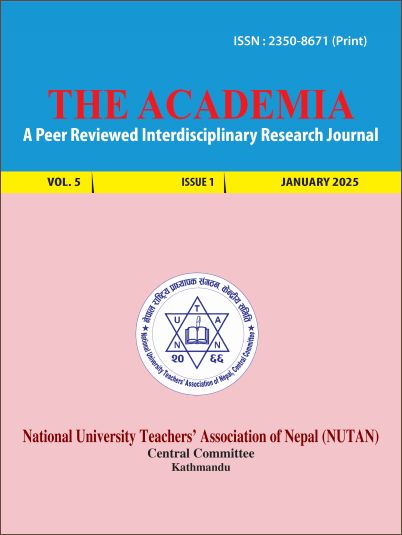Forgetting the Other: Forget Kathmandu in the Light of Cultural Trauma
DOI:
https://doi.org/10.3126/ta.v5i1.77181Keywords:
cultural trauma, the Other, people's war, representation, trauma literature, collective memoryAbstract
This paper analyzes the non-fiction work Forget Kathmandu: An Elegy for Democracy (2005) by Manjushree Thapa from the perspective of Cultural Trauma. It argues that the narrator of the book does not speak for the victims of the conflict, and therefore, the book should not be considered trauma-healing literature. The paper begins with an introduction to Cultural Trauma as a theory, presenting definitions from various theorists. It then contextualizes the theory, as it serves as the theoretical tool for the critical analysis of the text. Following the introduction, the paper provides a critical analysis of Thapa’s non-fiction work. This analysis focuses on the argument that the text neglects to address the suffering of the victims during the conflict. Therefore, the central concern of this paper is the representation of Nepal's violent past in the text under study. Specifically, the paper examines the representation of the People's War led by the CPN-Maoist and the counter-insurgency measures employed by the government, which was under a constitutional monarchy at the time. The paper concludes with the view that literary works written about conflict should assist in the healing process for the victims, helping them recover from the collective trauma they suffered as members of a community, group, party, or institution.
Downloads
Downloads
Published
How to Cite
Issue
Section
License
Copyright (c) 2025 National University Teachers' Association of Nepal, Central Committee

This work is licensed under a Creative Commons Attribution-NonCommercial-NoDerivatives 4.0 International License.
This license enables reusers to copy and distribute the material in any medium or format in unadapted form only, for noncommercial purposes only, and only so long as attribution is given to the creator.




